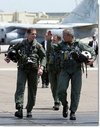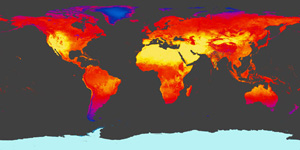So, Ted Koppel’s going to read the names of all the U.S. combat
fatalities in Iraq on “Nightline” Friday night. My first reaction was
that his show’s ripping off the famous feature Life magazine did (on June 27, 1969) that pictured all, or nearly all, 242 U.S. servicemen killed in action during a single week. (The show’s producer acknowledges that Life was the inspiration.) My second reaction is that it’s a ripoff without the smarts or courage that marked what Life did. Here’s what the “Nightline” producers have to say about their
inspiration in their daily email:
“…We realized that we seemed to just be giving numbers. So many killed in
this incident, so many more in that attack. Whether you agree with the war or
not, these men and women are serving, are putting their lives on the line, in
our names. We think it is important to remember that those who have paid the
ultimate price all have faces, and names, and loved ones. We thought about doing
this on Memorial Day, but that’s a time when most media outlets do stories about
the military, and they are generally lost in the holiday crush of picnics and
all. We didn’t want this broadcast to get lost. Honestly, I don’t know if people
will watch this for thirty seconds, or ten minutes, or at all. That’s not the
point. We think this is important. These men and women have earned nothing
less.
An excerpt from Life’s introduction to “One Week’s Dead” made it clear that the editors were trying to refrain from making an explicit antiwar statement:
“It is not the intention of this article to speak for the dead. We cannot
tell with any precision what they thought of the political currents which drew
them across the world. From the letters of some, it is possible to tell they
felt strongly that they should be in Vietnam, that they had great sympathy for
the Vietnamese people and were appalled at their enormous suffering. Some had
voluntarily extended their tours of combat duty; some were desperate to come
home. Their families provided most of these photographs, and many expressed
their own feelings that their sons and husbands died in a necessary cause. Yet
in a time when the numbers of Americans killed in this war – 36,000 – though far
less than the Vietnamese losses, have exceeded the dead in the Korean War, when
the nation continues week after week to be numbed by a three-digit statistic
which is translated to direct anguish in hundreds of homes all over the country,
we must pause to look into the faces. More than we must know how many, we must
know who. The faces of one week’s dead, unknown but to families and friends, are
suddenly recognized by all in this gallery of young American eyes….”
“We must pause to look into the faces.” Four years into the major combat phase of the war — and with a
long way and 22,000 more deaths to go — it was clear everywhere the price was appalling. The editors went on to note the division of opinion, even among the troops, about the war and what it was about. “The mother of one of the dead, whose son was the third of four to serve in the Army, insists with deep pride, ‘We are a patriotic family willing to pay that price.’ An aunt who had raised her nephew said of him, ‘He was really and truly a conscientious objector. He told me it was a terrible thought going into the Army and winding up in Vietnam and shooting people who hadn’t done anything to him…. Such a waste. Such a shame.’ “The overall effect of Life’s issue was to invite a deep consideration of the war and the price; not such a radical notion — this was nearly a year after the Democratic Convention in Chicago and just a few months before the huge Vietnam Moratorium marches; it was an issue everyone had to consider.
But what “Nightline” promises is something quite different. On one level, another solemn paean to our fighting men and women who have — the producers even use the cliche — “paid the ultimate price.” And
whether you’re for the war or agin it, you have to bow your head respectfully for that. But what we don’t get is a real appraisal of the cost or an invitation to consider it or a sober discussion of the future.
The “Nightline” reading sounds like a stunt — it’s funny that the right-wingers are already jumping on the idea because they think it’s an anti-war statement — because it repe ts the same mistake most major media have made since it became evident our semi-elected executive branch was determined to start this war: they’re behaving as if it’s fundamentally disloyal in our post-9/11 world to strenuously scrutinize the rationale for going to war or the motives of the people promoting it.
Like this:
Like Loading...


 The New York Times
The New York Times